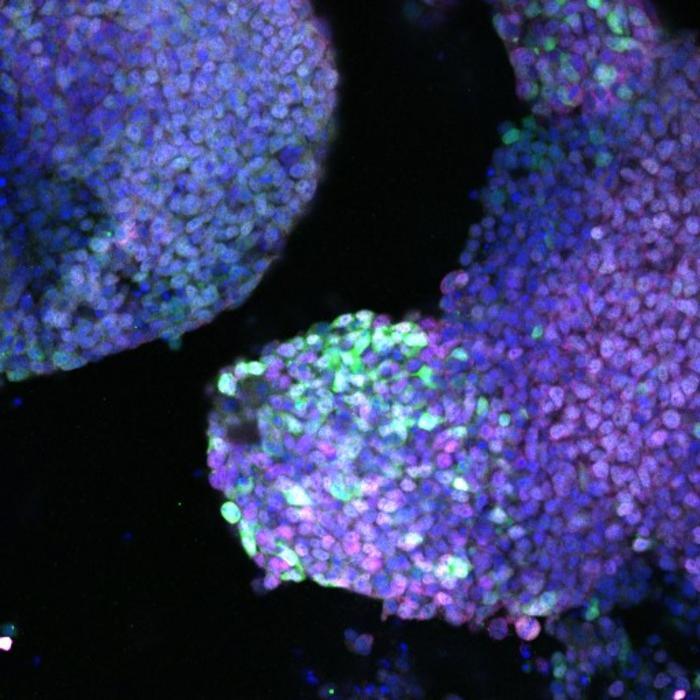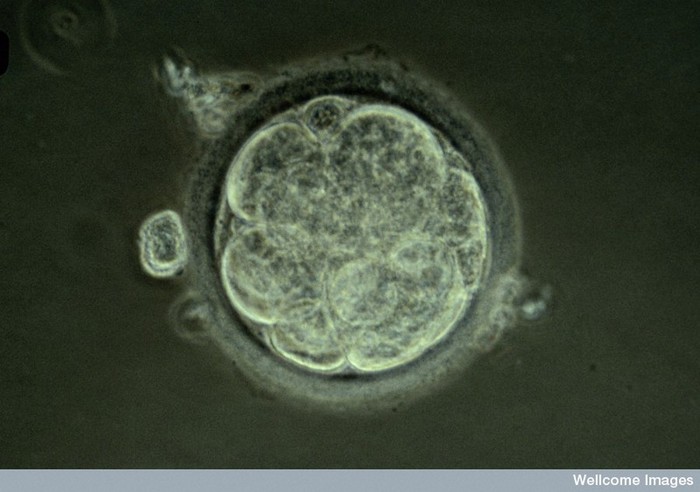Enlarge image
Early embryos outside the human body in a laboratory in China
Photo: Mark Schiefelbein / dpa
The International Society for Stem Cell Research (ISSCR) has adapted its guidelines for experiments with human embryos.
According to this, embryos produced by artificial insemination or made from human stem cells should in future be allowed to grow longer than the previously usual maximum of 14 days in the laboratory.
Researchers should be able to cultivate the embryos in the laboratory for as long as it serves the respective research purpose - but only after strict, individual testing.
Every research project should be examined and evaluated individually according to scientific and ethical aspects, writes the eleven-person group of authors of the updated guideline in the journal »Stem Cell Reports«.
In particular, it is also about the question of whether so-called embryo models develop the characteristics required for further maturation or not - that is, they would be able to survive in the long term.
Embryo models grow from embryonic stem cells, for example.
These, in turn, arise when researchers remove cell mass from human embryos at an early stage of development and cultivate them in the laboratory.
Alternatively, fully grown body cells can also be reprogrammed so that they can develop again into all types of tissue (read more about this here).
The transfer of such embryos into the uterus of a human or animal should continue to be prohibited.
Banned in Germany
The guideline authors come from the USA, Canada, Great Britain, Austria, Japan and China.
"Although the committee recognizes that the cultivation of a human embryo beyond 14 days is prohibited in many legal systems by laws or regulations, it believes that a blanket ban in this area could hinder important research directions," the group writes.
In Germany, the Embryo Protection Act (ESchG) generally prohibits the use of a human embryo for a purpose that does not serve its preservation.
Embryonic stem cells may not be produced in this country and may only be imported if they were created before 2002.
Research on early embryos outside the human body is prohibited.
Embryo models are not "real human life," said Thomas Zwaka of the Icahn School of Medicine at Mount Sinai in New York in response to the updated guideline.
New guidelines are overdue as many researchers have been aggressively pushing the boundaries of what is possible for years.
"Cell culture models beyond the 14-day rule are essential for our understanding of human development, as some of the most important developmental steps only take place after this period," says the expert.
It is becoming increasingly clear that the basis of many serious developmental disorders can be grasped with the extended models.
In the previous version of the international guideline from 2016, exceeding the 14-day rule was considered to be “prohibited activities”.
Since then, research has made great strides - both when it comes to cultivating human embryos and creating them from stem cells, say the experts.
Use surplus embryos
In Germany, the National Academy of Sciences Leopoldina and the Union of German Academies of Sciences recently called for new rules.
The ban on research on early embryos outside the human body should therefore be lifted.
According to a statement, scientists should be able to pursue high-level research goals in accordance with international standards.
The Embryo Protection Act passed in 1990 allows the creation of human embryos in vitro for the purpose of reproduction.
But it forbids any research on them.
In countries such as Israel, Denmark, Sweden, Great Britain, the USA and Japan, on the other hand, research on early human embryos that are no longer needed for reproduction is permitted within narrow limits.
Surplus embryos that were created as part of fertility treatments, but are no longer needed, should be allowed to be used for science, according to the demand.
A specially created committee should review the respective research projects and their goals.
Couples should decide
The Leopoldina experts emphasize that according to international scientific opinion there are a number of important questions that can only be scientifically dealt with with the help of embryo research.
This includes the treatment of common diseases such as diabetes, osteoarthritis, heart attacks or strokes with the help of stem cell lines.
In addition, it is about clarifying the early developmental biology of humans, improving reproductive medicine or better development of embryos and fetuses during pregnancy.
So far, German scientists have been able to contribute little to this research.
"Thirty years after the ESchG came into force, the academies believe it is time to reassess the legally permissible and ethically justifiable handling of early human embryos."
From the point of view of science academies, the decision on whether to make surplus embryos available for research should lie with the couple from whom they come.
When the family planning of these couples is complete, the remaining embryos could only be discarded or donated for other couples.
Intense debates for years
According to the information, more than 319,000 children were born in Germany between 1997 and 2018 after in vitro fertilization (IVF).
In the procedure, egg cells are removed from the woman after hormone administration and brought together with the man's semen.
In some cases, more embryos are created than are transferred to the woman.
"Research on early embryos in vitro, ie outside the human body, which were created for reproductive purposes but are no longer used for this purpose, should be allowed in accordance with international standards," the statement said.
"Permission to conduct research should only apply to high-level research goals."
A federal authority could therefore decide together with an ethics committee on the admissibility of the project.
Embryo research has been causing intense debates for decades.
Research interests play a role as well as ethical and legal considerations.
jme / dpa







/cloudfront-eu-central-1.images.arcpublishing.com/prisa/MNACP55MFZEWDPW5ELRNS5IENE.jpg)

